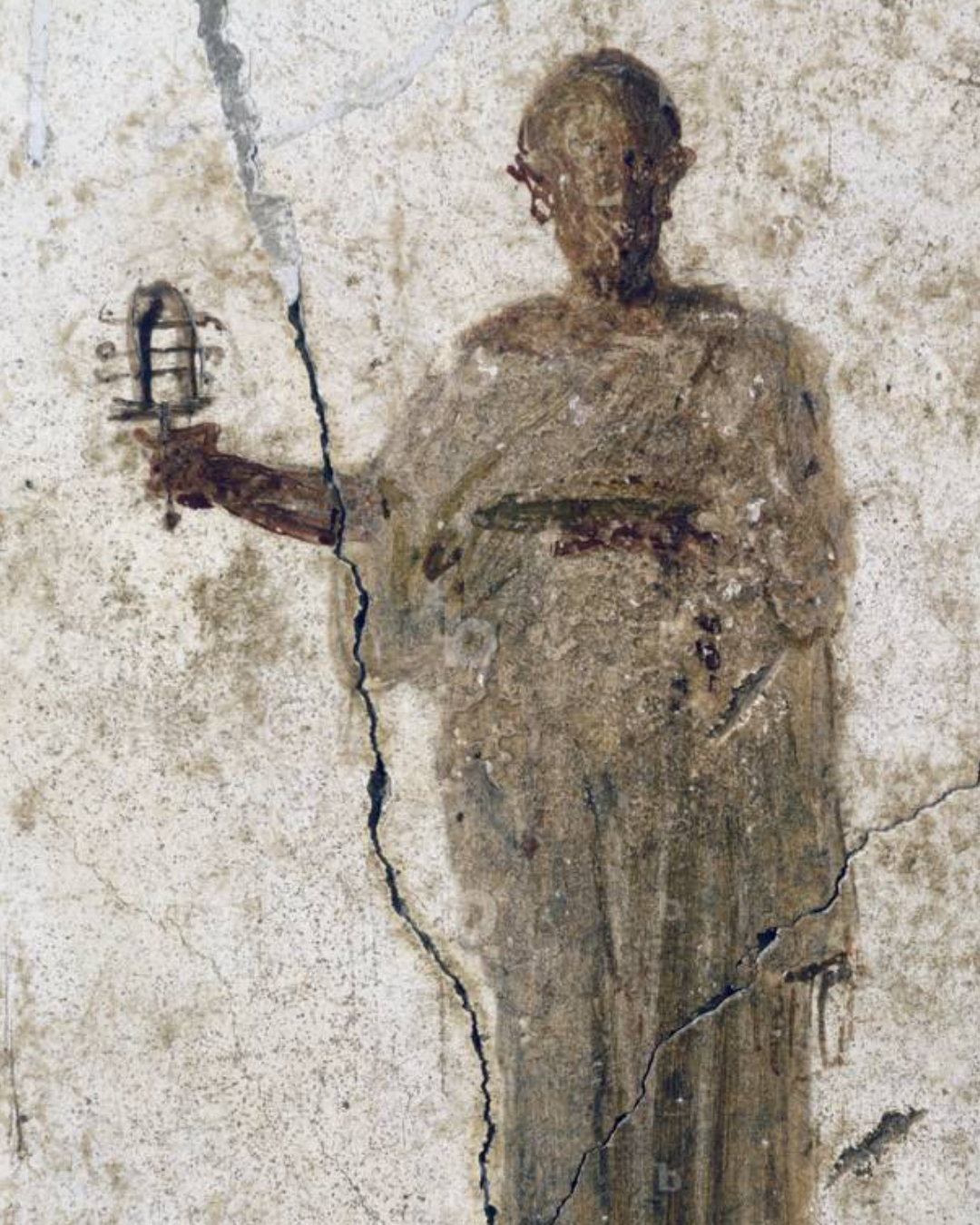Sunrise brings ritual silence that has nothing to do with contemplation and everything to do with discipline. Before speaking, before thinking, before acknowledging the world exists — he bathes. Herodotus documented the obsession with cleansing rituals, as Natron and Nile water strip away what he calls "the dust of mortality" — the accumulated residue of existing in a world where human chaos swirls with godly manipulation, where temple funding depends on Roman tolerance, where serving Isis means navigating between authentic faith and imperial approval.
Morning finds him in the Iseum's inner sanctum, performing duties that blur the line between service and spectacle. He opens the shrine, washes Isis's statue with oils that cost more than most Romans earn annually, dresses her in fresh linen while whispering prayers that sound suspiciously like diplomatic negotiations.

The offerings follow — bread, fruit, incense. This isn't worship in any spontaneous sense but carefully choreographed maintenance of relationships that require constant attention to survive, a needy lover jutting against his celibate resistance.
Midday brings politics disguised as spiritual service: interpreting omens that somehow always align with patron expectations, overseeing public prayers that double as loyalty demonstrations, guarding cult secrets that are usually administrative details inflated into mystical importance.
Priests of Isis function as cultural diplomats, translating Egypt's ancient spirituality into forms palatable to Rome's growing fascination with exotic gods — provided those gods remember their place in the imperial hierarchy.
Evening requires another cleansing, as though the day's religious compromises could be washed away. He burns kyphi — that honeyed, resinous blend Plutarch praised for its ability to "banish the weariness of day”.
The meditation that follows isn't transcendence but inventory: which rituals maintained funding, which interpretations pleased the right people, which silences preserved what actually mattered beneath the performance.
Life as Roman priest means living as bridge between human and divine — if you can tell the difference anymore.



